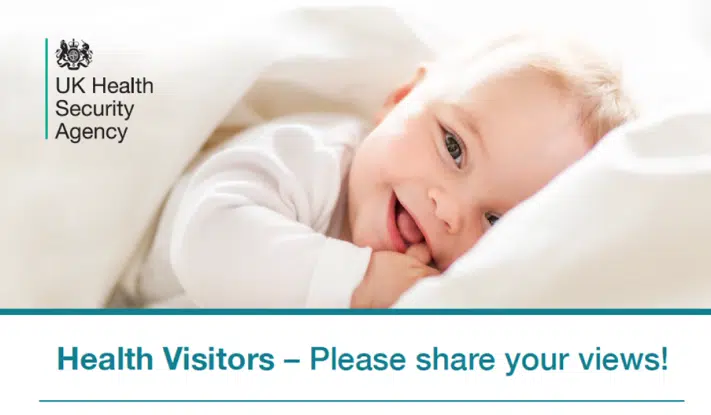The UK Health Security Agency (UKHSA) recently presented a national update on Pertussis at the iHV Evidence-based Practice Conference on 3 July 2024. With UKHSA’s permission, we have now made the recording of this session ‘open access’ so it can be shared and viewed more widely with health visitors and health visiting team members across the UK.
UKHSA is calling on frontline clinicians to promote the uptake of the pertussis vaccine. Pregnant women should receive a pertussis-containing vaccination between 20- and 32-weeks’ gestation and with every pregnancy. Health visitors have a crucial role in discussing vaccinations with pregnant women and promoting vaccine uptake.
Watch the recording of the UKHSA Pertussis Update at iHV Evidence-based Practice Conference here.
In her presentation, Dr Helen Campbell (Lead Clinical Scientist at the UKHSA Immunisation team) highlights the clinical features of pertussis:
- It is a bacterial infection affecting the lungs
- Initial symptoms resemble a cold, such as a runny nose and sore throat
- After about a week, severe coughing bouts can develop, typically worse at night (known as the 100-day cough)
- Young babies may make a distinctive ‘whoop’ sound or have difficulty breathing after coughing.
Helen shared a very powerful video which shows a young baby who is experiencing a long bout of coughing and whooping: https://youtu.be/S3oZrMGDMMw (WARNING: this video may be upsetting for some viewers).
New data published by UKHSA show a concerning increase in Pertussis cases:
- May 2024: 2,591 confirmed cases
- April 2024: 2,106 confirmed cases
- March 2024: 1,427 confirmed cases
- February 2024: 920 confirmed cases
- January 2024: 555 confirmed cases
This brings the total number of cases from January to May 2024 to 7,599.
Sadly, there have been 9 infant deaths since the current outbreak began in November last year with one death in December 2023 and eight deaths between January and May 2024.
Young babies are at the highest risk of severe complications and death from pertussis. Evidence from England shows that vaccination at the right time in pregnancy is highly effective, giving 92% protection against infant death. However, the latest uptake data for the vaccination offered to pregnant women shows a decline:
- March 2024: 58.9% coverage
- March 2017: Peak coverage of 72.6%
Timely vaccination during pregnancy and in childhood is crucial to protect vulnerable and young babies from serious diseases. Babies should receive three doses of the 6-in-1 vaccine at 8, 12, and 16 weeks, followed by a pre-school booster. Health visitors have a vital role in:
- recommending pertussis vaccination
- checking vaccine status
- providing guidance on where and when to obtain vaccinations
- addressing any queries parents or caregivers may have.
For further information and to access UKHSA resources on Pertussis, click here.
UKHSA has recently published a powerful new blog post by Jenny, a parent who shares her terrifying experience of her three week old daughter, Layla and her struggle with pertussis.




